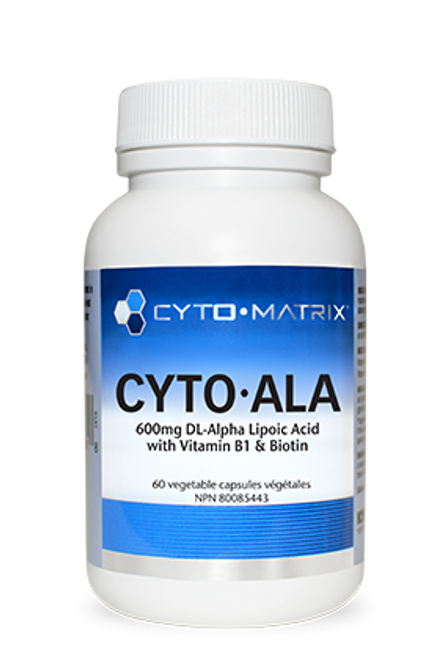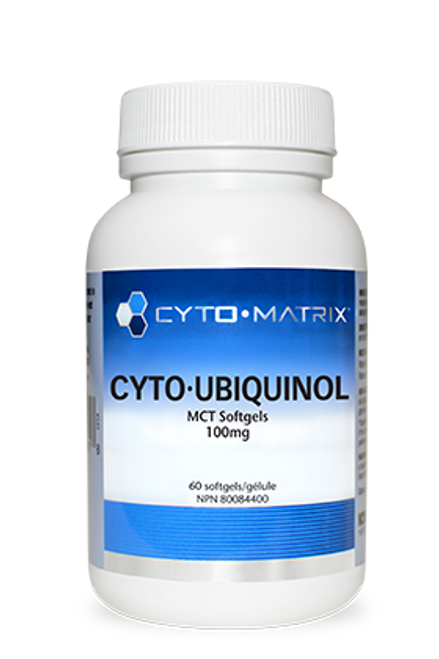NPN 80113361
Vitamin B9, known as folic acid or folate, cannot be synthesized by the body so we rely on our diet. Folate is found primarily in leafy green vegetables, legumes, eggs, beans and citrus fruits. It is physiologically required for proper DNA and RNA synthesis, red blood cell production, protein metabolism, energy production and even neurotransmitter synthesis. Unfortunately, lifestyle habits, dietary choices, certain medications and diseases can all deplete the body’s folate supply.
The need for folic acid supplementation became apparent decades ago when it was identified that pregnant women lacking sufficient levels were at greater risk of delivering children with birth defects. As a result of this discovery, many foods are now fortified with the crucial nutrient.
The challenge is that folate exists in multiple forms and not every individual has the enzymatic capability to convert to the most active form known as 5-methyltetrahydrofolate (5-MTHF). Folic acid is the synthetic form of folate that requires multiple enzymes and steps to ultimately reach the bioactive form of 5-MTHF. One key enzyme, 5-MTHF reductase, has been identified as problematic in a significant proportion of the population.
Research has found that a significant percentage of the population has a suboptimal ability to convert folic acid into 5-MTHF because of a genetic variation. Up to 20% of people of European background have two copies of this gene mutation, while 40%-50% of the same population has one copy. With two copies, the body’s ability to convert folate to 5-MTHF is reduced by 60% and studies have shown that people with two copies of the variant are at higher risk for certain diseases. Those with only one copy of the gene variant have their conversion ability reduced by 35%. The high prevalence of these genetic modifications suggests that 5-MTHF is the necessary form for supplementation in all individuals to ensure that even those with a 5-MTHF reductase mutation can still absorb and fully utilize folate
Folate is particularly important in the first trimester of pregnancy to fuel rapid growth of the developing brain and nervous system. Specifically, low levels have been linked to neural tube defects like spina bifida and anencephaly, as well as a higher risk of early miscarriage. A folate deficiency is also classically known to cause macrocytic anemia, but fewer people realize that it can contribute to cardiovascular disease, stroke and even mental health imbalances.
Low levels of 5-MTHF in the bloodstream have long been found in populations of individuals with low mood. Studies have since confirmed that 5-MTHF is a viable and extremely safe treatment option as a stand-alone therapy, and also in combination with SSRI antidepressants drugs. In fact, for individuals that respond poorly to SSRI antidepressants, 5-MTHF is particularly indicated and has been shown to increase the drug’s effectiveness. All in all, folate is imperative when it comes to mood regulation.Cyto-Folate offers the highly bioavailable 5-MTHF form of folate in order to ensure proper utilization in the body regardless of genetic profile.
Cyto-Folatecombines 200 mcg of 5-MTHF with 20 mcg of active methylcobalamin per drop, allowing for variable and targeted dosing. Methylcobalamin is added to ensure that folate supplementation does not mask a B12 deficiency, a phenomenon that may occur when folate is given on its own. Each bottle of Cyto-Folate provides450 servings and is lightly sweetenedin a natural blueberry flavour.
Unit of Measure above: Each drop
Non-Medicinal Ingredients: Natural blueberry flavour, natural flavour, citric acid, glycerin, potassium phosphate, potassium sorbate, sodium hydroxide, disodium EDTA, stevia, purified water.
Warnings: Do not use if safety seal is broken.
Vitamin B9, known as folic acid or folate, cannot be synthesized by the body so we rely on our diet. Folate is found primarily in leafy green vegetables, legumes, eggs, beans and citrus fruits. It is physiologically required for proper DNA and RNA synthesis, red blood cell production, protein metabolism, energy production and even neurotransmitter synthesis. Unfortunately, lifestyle habits, dietary choices, certain medications and diseases can all deplete the body’s folate supply.
The need for folic acid supplementation became apparent decades ago when it was identified that pregnant women lacking sufficient levels were at greater risk of delivering children with birth defects. As a result of this discovery, many foods are now fortified with the crucial nutrient.
The challenge is that folate exists in multiple forms and not every individual has the enzymatic capability to convert to the most active form known as 5-methyltetrahydrofolate (5-MTHF). Folic acid is the synthetic form of folate that requires multiple enzymes and steps to ultimately reach the bioactive form of 5-MTHF. One key enzyme, 5-MTHF reductase, has been identified as problematic in a significant proportion of the population.
Research has found that a significant percentage of the population has a suboptimal ability to convert folic acid into 5-MTHF because of a genetic variation. Up to 20% of people of European background have two copies of this gene mutation, while 40%-50% of the same population has one copy. With two copies, the body’s ability to convert folate to 5-MTHF is reduced by 60% and studies have shown that people with two copies of the variant are at higher risk for certain diseases. Those with only one copy of the gene variant have their conversion ability reduced by 35%. The high prevalence of these genetic modifications suggests that 5-MTHF is the necessary form for supplementation in all individuals to ensure that even those with a 5-MTHF reductase mutation can still absorb and fully utilize folate
Folate is particularly important in the first trimester of pregnancy to fuel rapid growth of the developing brain and nervous system. Specifically, low levels have been linked to neural tube defects like spina bifida and anencephaly, as well as a higher risk of early miscarriage. A folate deficiency is also classically known to cause macrocytic anemia, but fewer people realize that it can contribute to cardiovascular disease, stroke and even mental health imbalances.
Low levels of 5-MTHF in the bloodstream have long been found in populations of individuals with low mood. Studies have since confirmed that 5-MTHF is a viable and extremely safe treatment option as a stand-alone therapy, and also in combination with SSRI antidepressants drugs. In fact, for individuals that respond poorly to SSRI antidepressants, 5-MTHF is particularly indicated and has been shown to increase the drug’s effectiveness. All in all, folate is imperative when it comes to mood regulation.Cyto-Folate offers the highly bioavailable 5-MTHF form of folate in order to ensure proper utilization in the body regardless of genetic profile.
Cyto-Folatecombines 200 mcg of 5-MTHF with 20 mcg of active methylcobalamin per drop, allowing for variable and targeted dosing. Methylcobalamin is added to ensure that folate supplementation does not mask a B12 deficiency, a phenomenon that may occur when folate is given on its own. Each bottle of Cyto-Folate provides450 servings and is lightly sweetenedin a natural blueberry flavour.
| Ingredient | Amount |
|---|---|
| Folate (L-5-methyltetrahydrofolate) | 200mcg |
| Vitamin B12 (methylcobalamin) | 20mcg |
Non-Medicinal Ingredients: Natural blueberry flavour, natural flavour, citric acid, glycerin, potassium phosphate, potassium sorbate, sodium hydroxide, disodium EDTA, stevia, purified water.
Warnings: Do not use if safety seal is broken.







